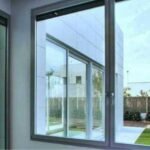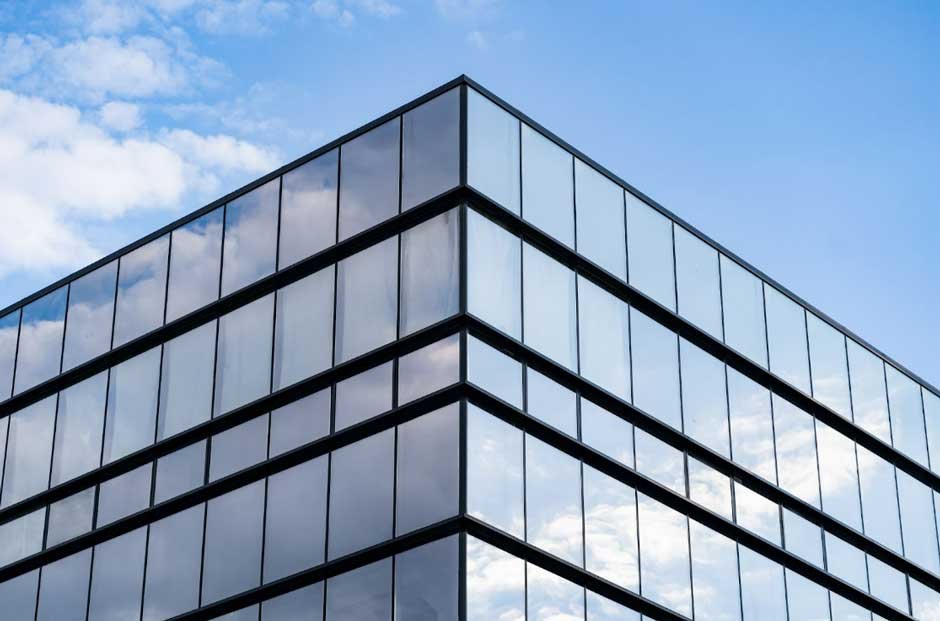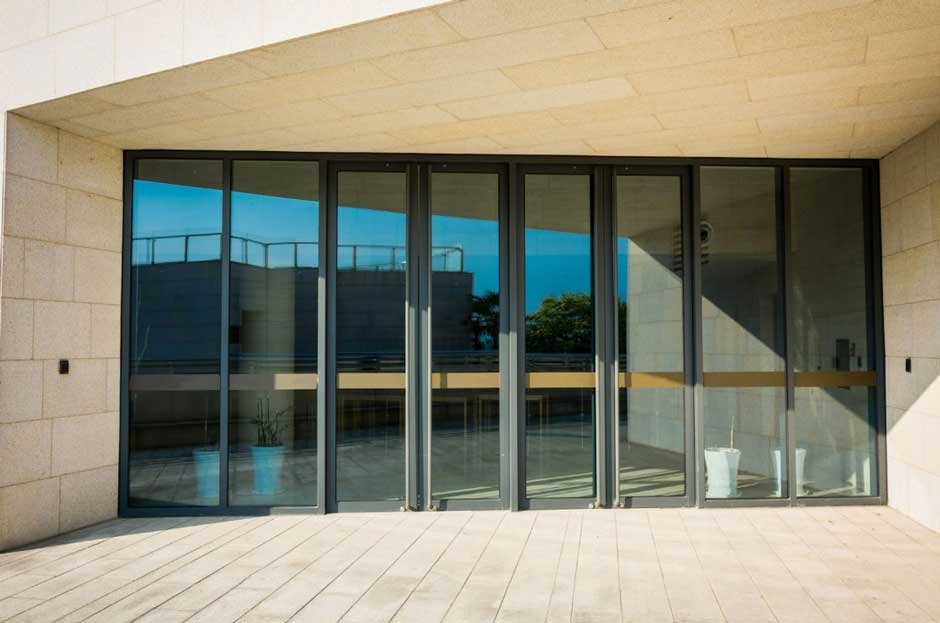Summary
- Glass and aluminium companies are transforming modern architecture with innovative materials that combine transparency, strength, and energy efficiency
- The construction glass market has experienced significant growth and is expected to continue expanding rapidly over the next decade
- Energy efficient glass systems can reduce heating and cooling costs by up to 30 percent while improving building comfort and sustainability
- Modern manufacturing techniques enable curved facades, smart glass technologies, and customizable designs that were impossible just a decade ago
- Both commercial and residential projects benefit from advanced glass and aluminium solutions that prioritize natural light, sustainability, and long-term performance
Have you ever walked through a modern city and wondered what makes today’s buildings look so sleek and stunning? The answer lies in the innovative work of glass and aluminium companies that are reshaping how we design and construct our built environment. These companies have become the backbone of contemporary architecture, bringing together beauty and functionality in ways that were once impossible.
The transformation happening in our cities is remarkable. Glass and aluminium companies in dubai and across the globe are pioneering solutions that go far beyond traditional building materials. They’re creating spaces that breathe, adapt, and connect us with our surroundings in entirely new ways. This shift isn’t just about aesthetics. It’s about reimagining what buildings can do for the people who use them every day.
The Rise of Modern Glass and Aluminium Designs
Modern architecture has embraced transparency like never before. Walk into any newly constructed office building or luxury residence, and you’ll likely see floor-to-ceiling windows that blur the line between inside and outside. This trend isn’t happening by accident. Aluminium and glass suppliers have developed materials that make these expansive views possible while maintaining structural integrity and safety.
The construction glass market has experienced impressive growth in recent years. Experts predict this sector will continue expanding at a steady rate of approximately 5.4 percent annually over the next decade. These numbers tell a compelling story about how essential these materials have become to modern construction.
What’s driving this growth? Several factors are at play:
- Smart technologies that automatically adjust glass tint based on sunlight intensity
- Integrated sensors that monitor temperature and regulate ventilation
- Advanced engineering that allows for larger glass panels with minimal framing
- Growing demand for sustainable building materials
- Increased focus on natural light and biophilic design principles
Glass and aluminium works now incorporate smart technologies that respond to environmental conditions. This marriage of technology and traditional building materials is opening doors to possibilities that architects of previous generations could only dream about.
Commercial Glass and Aluminium Services Transform Business Spaces
Think about the last time you visited a modern office building. Did you notice the expansive glass walls, the seamless aluminium frames, or the way natural light flooded the interior spaces? These features didn’t happen by chance. They’re the result of specialized commercial glass and aluminium services that understand what businesses need from their physical spaces.
Today’s commercial buildings demand more than just good looks. They need to be energy efficient, secure, and adaptable to changing business needs. Glass and aluminium companies have risen to meet these challenges by developing innovative solutions that tick all these boxes. For instance, modern glass systems can reduce energy consumption for heating and cooling by significant margins, helping businesses cut costs while reducing their environmental impact.
The trend toward minimalist facades is particularly strong in commercial architecture. Advanced engineering techniques allow for slimmer aluminium profiles that maximize glass area without compromising strength. This creates that sought-after clean, modern look while allowing maximum natural light penetration. The result is work environments that feel open, inspiring, and connected to the world outside.
Residential Aluminium Glass Solutions for Modern Homes
Homeowners today have different expectations than previous generations. They want homes that feel spacious, bring in natural light, and connect indoor living spaces with outdoor environments. Residential aluminium glass solutions are making these dreams a reality in ways that weren’t possible just a decade ago.
Large sliding glass doors have become increasingly popular in residential design. These systems, supported by strong aluminium frames, can span impressive widths while maintaining smooth operation and weather resistance. Some designs incorporate multi-panel systems that can be opened completely, transforming a wall into an open-air pavilion when weather permits.
But it’s not just about grand gestures. Even standard windows have been transformed by advances in glass and aluminium technology. Modern windows offer superior thermal insulation, reducing heat loss in winter and heat gain in summer. This translates directly into lower energy bills and more comfortable living spaces year-round. Homeowners also benefit from improved sound insulation, which is particularly valuable in urban environments.
Energy Efficient Glass Systems Leading the Sustainability Charge
Sustainability has moved from buzzword to necessity in modern construction. Energy efficient glass systems are at the forefront of this movement, offering solutions that dramatically reduce buildings’ environmental footprints. These systems combine specialized coatings, multiple glass layers, and advanced framing techniques to minimize heat transfer.
Low-emissivity glass, commonly known as Low-E glass, has become a standard feature in many construction projects. This type of glass has microscopic coatings that reflect infrared light, keeping heat inside during winter and outside during summer. When combined with insulated glass units that trap inert gases like argon between panes, the energy savings can be substantial.
The numbers speak for themselves. Buildings using modern energy-efficient glass systems can reduce their heating and cooling costs by up to 30 percent compared to traditional single-pane windows. In regions with extreme climates, these savings add up quickly, making quality glass systems a wise long-term investment.
Key benefits of energy efficient glass include:
- Up to 30 percent reduction in heating and cooling costs
- Improved indoor comfort with fewer temperature fluctuations
- Reduced carbon footprint and environmental impact
- Lower maintenance requirements compared to older systems
- Enhanced property value and market appeal
Glass and aluminium companies are also exploring ways to integrate renewable energy generation into building facades. Photovoltaic glass, which generates electricity from sunlight while maintaining transparency, is no longer science fiction. Several innovative projects around the world now feature these systems, turning building exteriors into power-generating surfaces.
Glass and Aluminium Company for Offices: Creating Productive Workspaces
The modern office has evolved dramatically over the past decade. Open floor plans, collaborative spaces, and abundant natural light have become hallmarks of contemporary workplace design. A glass and aluminium company for offices understands that these spaces need to do more than look good. They must support productivity, creativity, and employee wellbeing.
Research consistently shows that natural light has profound effects on human health and performance. Workers in spaces with ample daylight report better mood, higher energy levels, and improved focus compared to those in poorly lit environments. Glass facades and interior partitions allow daylight to penetrate deep into buildings, reducing reliance on artificial lighting and creating more pleasant work environments.
But transparency brings challenges too. Privacy, acoustics, and glare control all require careful consideration. Modern glass solutions address these concerns through various techniques. Frosted or textured glass provides privacy while maintaining light transmission. Acoustic laminated glass reduces sound transfer between spaces. Advanced coating technologies minimize glare without sacrificing views or daylight.
Sustainable Glass and Aluminium Materials: Building for Tomorrow
The construction industry faces increasing pressure to reduce its environmental impact. Sustainable glass and aluminium materials are helping companies meet this challenge while still delivering the performance and aesthetics that modern architecture demands. Both materials offer significant environmental advantages when sourced and used responsibly.
Aluminium is infinitely recyclable without loss of quality. This means that aluminium frames from demolished buildings can be melted down and reformed into new products indefinitely. In fact, approximately 75 percent of all aluminium ever produced is still in use today. Modern aluminium production has also become more energy efficient, with some manufacturers using renewable energy sources and recycled content to reduce their carbon footprint.
Glass recycling has advanced considerably as well. Manufacturers are increasingly incorporating recycled glass into their products, reducing the need for virgin raw materials and the energy required for production. Some glass and aluminium companies have partnered with solar panel manufacturers to develop recycling programs for photovoltaic glass, creating circular economy solutions that minimize waste.
Why sustainable materials matter:
- Aluminium is 100 percent recyclable without quality loss
- 75 percent of all aluminium ever produced remains in use today
- Recycled glass reduces manufacturing energy requirements
- Longer product lifespans minimize replacement needs
- Lower lifetime carbon emissions compared to alternative materials
- Support circular economy principles
Beyond material sourcing, sustainable practices extend to manufacturing processes and product lifespans. Modern glass and aluminium systems are designed for longevity, reducing the need for replacement and the associated environmental costs. Proper maintenance can keep these systems performing well for decades, making them truly sustainable choices for building projects.
Glass and Aluminium Finishing Services: The Details Matter
The difference between a good installation and a great one often comes down to finishing details. Glass and aluminium finishing services ensure that every joint is sealed, every edge is protected, and every surface is properly treated. These finishing touches aren’t just cosmetic. They’re essential for long-term performance, weather resistance, and aesthetic appeal.
Powder coating has become the preferred finishing method for aluminium frames. This process creates a durable, uniform coating that resists fading, chipping, and corrosion far better than traditional paint. The range of available colors and textures has expanded dramatically, allowing architects to specify finishes that perfectly match their design vision. From sleek metallics to matte blacks or custom colors, the options are nearly limitless.
Sealant technology has advanced significantly as well. Modern sealants maintain flexibility over wide temperature ranges, accommodate building movement, and resist degradation from UV exposure. Proper sealing is critical for preventing water infiltration and air leakage, both of which can compromise building performance and comfort.
Glass and Aluminium Business Solutions: Innovation Meets Practicality
Behind every impressive glass facade or innovative window system lies a complex business operation. Glass and aluminium business solutions encompass everything from initial design consultation through manufacturing, installation, and maintenance. The most successful companies in this field understand that technical expertise must be matched with strong project management and customer service.
Digital technology is transforming how these businesses operate. Building Information Modeling allows architects, engineers, and glass specialists to collaborate on designs with unprecedented precision. Computer-controlled manufacturing ensures that every piece is fabricated to exact specifications. Project management software tracks installations in real-time, keeping stakeholders informed and projects on schedule.
Quality control has become more rigorous as well. Modern glass and aluminium manufacturers use advanced testing equipment to verify that products meet or exceed performance standards for strength, thermal efficiency, and weather resistance. Many companies maintain their own testing facilities where they can evaluate new products and validate custom solutions before they reach construction sites.
Modern Glass and Aluminium Manufacturers: Pushing Boundaries
The most innovative modern glass and aluminium manufacturers are constantly pushing the boundaries of what’s possible. They’re developing curved glass systems for iconic architectural projects, creating extra-large panels that minimize visual interruptions, and pioneering smart glass technologies that respond to environmental conditions.
Cold-bent glass has emerged as a fascinating technique for creating curved facades without the expense of hot-bending processes. In this approach, flat glass panels are bent during installation, with structural silicone seals designed to accommodate the resulting stresses. Projects like Dubai’s Wasl Tower have showcased this technique, featuring cold-bent glass up to 40 millimeters thick to create dramatic twisted facades.
Parametric design has opened new possibilities for complex architectural geometries. Using sophisticated software, designers can create intricate patterns and unconventional shapes that would have been prohibitively expensive or impossible to manufacture just years ago. These designs require bespoke unitized facades that push manufacturing capabilities to their limits, but the results are structures that capture attention and imagination.
The Future is Transparent
As we look ahead, the role of glass and aluminium companies in shaping our built environment will only grow more important. Climate change demands buildings that consume less energy and generate fewer emissions. Urban density requires structures that maximize space while maintaining livability. People expect buildings that enhance their wellbeing and connect them with nature.
These challenges are daunting, but they also present opportunities for innovation. Smart glass technologies will become more sophisticated and affordable. Manufacturing processes will become cleaner and more efficient. Designs will continue to push aesthetic and functional boundaries. The companies that thrive will be those that embrace sustainability, invest in research and development, and never stop questioning what’s possible.
The glass and aluminium industry stands at an exciting crossroads. The materials and techniques exist to create buildings that are more beautiful, efficient, and sustainable than ever before. The question isn’t whether these innovations will reshape architecture. It’s how quickly they’ll become the new standard, and what amazing structures will emerge as a result.
Conclusion
The evolution of glass and aluminium companies reflects broader changes in how we think about buildings and their role in our lives. From commercial towers to residential homes, these materials are enabling architects to create spaces that inspire, perform efficiently, and stand the test of time. As technology advances and sustainability becomes ever more critical, we can expect continued innovation that makes our buildings work harder while looking better than ever.
Frequently Asked Questions
What do glass and aluminium companies do? They specialize in designing, manufacturing, and installing glass and aluminium systems for buildings, including windows, doors, facades, and curtain walls that meet modern architectural and performance standards.
Why should I choose glass and aluminium materials for my building? These materials offer exceptional durability, design flexibility, energy efficiency, and require minimal maintenance while providing modern aesthetics and abundant natural light.
What are the benefits of hiring a professional glass and aluminium company? Professional companies ensure proper installation, provide warranties, meet building codes and safety standards, and deliver systems that perform reliably for decades.
How long do glass and aluminium installations typically last? With proper maintenance, quality glass and aluminium systems can perform effectively for 30 to 50 years or more, making them excellent long-term investments.
Can glass and aluminium systems really reduce energy costs? Yes, modern energy-efficient glass systems with Low-E coatings and insulated frames can reduce heating and cooling costs by up to 30 percent compared to older single-pane systems.





